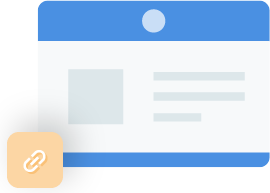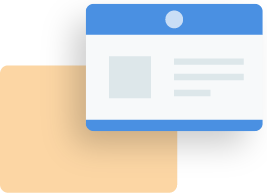What Is Hotel Booking Integration API
A Hotel Booking Integration API is a web-based service that encourages hospitality and tourism organizations to gather data and information in the form of number of available rooms and prices from different hotels and make it public for the users and guests to book online.
Hotel XML API is the technical term for Hotel Booking API. The hotel booking functionality manages availability, rates, and a variety of other information variables. All of these features, allow offering customers the best options for an ideal staying place at their desired destination.
The booking integrator technology is implemented on your property website portal and seamlessly connects with several payment gateway integrations to make the entire process easier for you and your consumers.
Features of a Hotel Booking APIs
Here are some of the most appealing features of hotel booking integration APIs.
- Ideal for building and updating customized applications for travel bookings
- They are flexible and scalable which makes them easy to implement or integrate
- They use open system architecture
- They decrease your app development cost
- Their custom design solution can help maximize the efficiency of your booking systems
- They are reliable and robust
- These APIs are independent of application framework and language
- Now you can stream the prices in real-time for your customers
- They are highly optimizable etc.
With an adequate hotel booking integration API, you can easily browse a variety of hotel offers, book or cancel a room, generate reports for all the bookings and cancellations, etc. A good API uses 2-Way XML integration functions to help achieve all the above goals and much more.
How 2-Way XML Integration Functions
You can use various channel manager solutions offering sophisticated and unique two-way XML integration technology. This helps you build a link between your hotel’s CRS/PMS, booking channels, and Revenue Management System (RMS).
These two-way connections work as a medium to exchange information between your hotel and online hotel booking agencies such as Booking.com, Expedia, Hotelbeds, HRS, Agoda, Orbitz, etc.
Whenever a customer buys an accommodation from any of these websites, your hotel’s PMS automatically updates itself. This means the days of you having to enter each booking manually are over.
Simultaneously updated real-time rates, restrictions, and availabilities are also automatically sent to the online websites from your PMS. As a hotelier, you can now maximize both your room inventory and revenues without any fear of mix-ups or overbooking.
Assessing the Solutions Is Essential
Two-way XML integration saves your hotel’s precious time. According to Michael Kinloch, the Head of Sales at SiteMinder, saving hotelier their time is incredibly significant in the ever-evolving landscape of distribution.
Two-way integration will also help you cut down your costs of acquiring each reservation considerably. Your hotel staff can use the saved time to manage their in-house operations and guests more efficiently and effectively to create a pleasant guest experience.
There are several other advantages associated with two-way integration. For instance, retaining revenues that you would otherwise lose due to delayed cancellations, hence increasing your revenue by maximizing your exposure online with automated rooms availability and rate updates.
However, not all distribution channels offer equal benefits. As a hotelier, you must diligently assess your software technologies offering automation between reservation and distribution systems.
The hotel industry is ever-evolving, and you need to be agile in your approach when it comes to using reservation technology.
Key Benefits of Using Hotel API
Here are some of the key benefits of using Hotel Booking Integration APIs.
- APIs offer your hotel the convenience to choose your business modules.
- You get permission to explore all outstanding contracted prices.
- They let you offer great options in hotels.
- Now your hotel booking system has an all-time presence with instant booking approval.
- APIs make your reservation process easy and automated.
- Your customers get valid and reliable information.
- All hotel booking APIs offer user-friendly integration.
- They offer excellent assistance to merge your systems with online booking agencies.
- You can provide customized services to each guest.
- The guests can easily book and navigate with individual hotel booking integration API.
Learn about Distribution Channels and Payment Gateways
Distribution channels represent a chain of intermediaries or businesses through which a service or good reaches the customers. Distribution channels may include retailers, wholesalers, distributors, or even online entities. For example, in the hotel industry, it can be online booking agencies or services, such as Expedia or Booking.com
Distributions channels are a downstream process that answers the question: “how do you get your product to the potential consumer?” In contrast, the upstream process is known as a supply chain answering the question, “Who are your suppliers?”
A distribution channel, alternatively known as placement, is a part of the company’s marketing strategy that also includes products, prices, and promotions.
Understanding Distribution Channels
A distribution channel defines the path through which all products and services travel to reach the intended customers. It also determines the pathway for payments to make their way from end customer to the original service provider or vendor.
It can be a long or short route, depending on how many intermediaries are involved in delivering the products or services. Sometimes services and goods reach the intended customers after passing through multiple channels.
Increasing the number of channels to reach your service can help increase your sales. But, it can also add complexity to your system, making your distribution management difficult.
Note that longer distribution channels sometimes translate to lower profits each time an intermediary charges you for each hotel booking.
Indirect and Direct Channels
Distributions channels have two forms indirect and direct. An indirect channel allows your consumers to book a room with an online booking agency, while a guest using a direct channel can contact your hotel to make a direct booking.
In case your distribution channels involve any intermediaries, it increases the overall price of the service you provide.
It is safe to say that the direct channel offers lower rates for consumers. They can book the rooms at the rate sold by your hotel, avoiding additional charges by the intermediaries. Plus, you get to save the money as you do not have to pay commissions to the intermediary for direct bookings.


 info@cultbooking.com
info@cultbooking.com  0049 30 726225 0
0049 30 726225 0